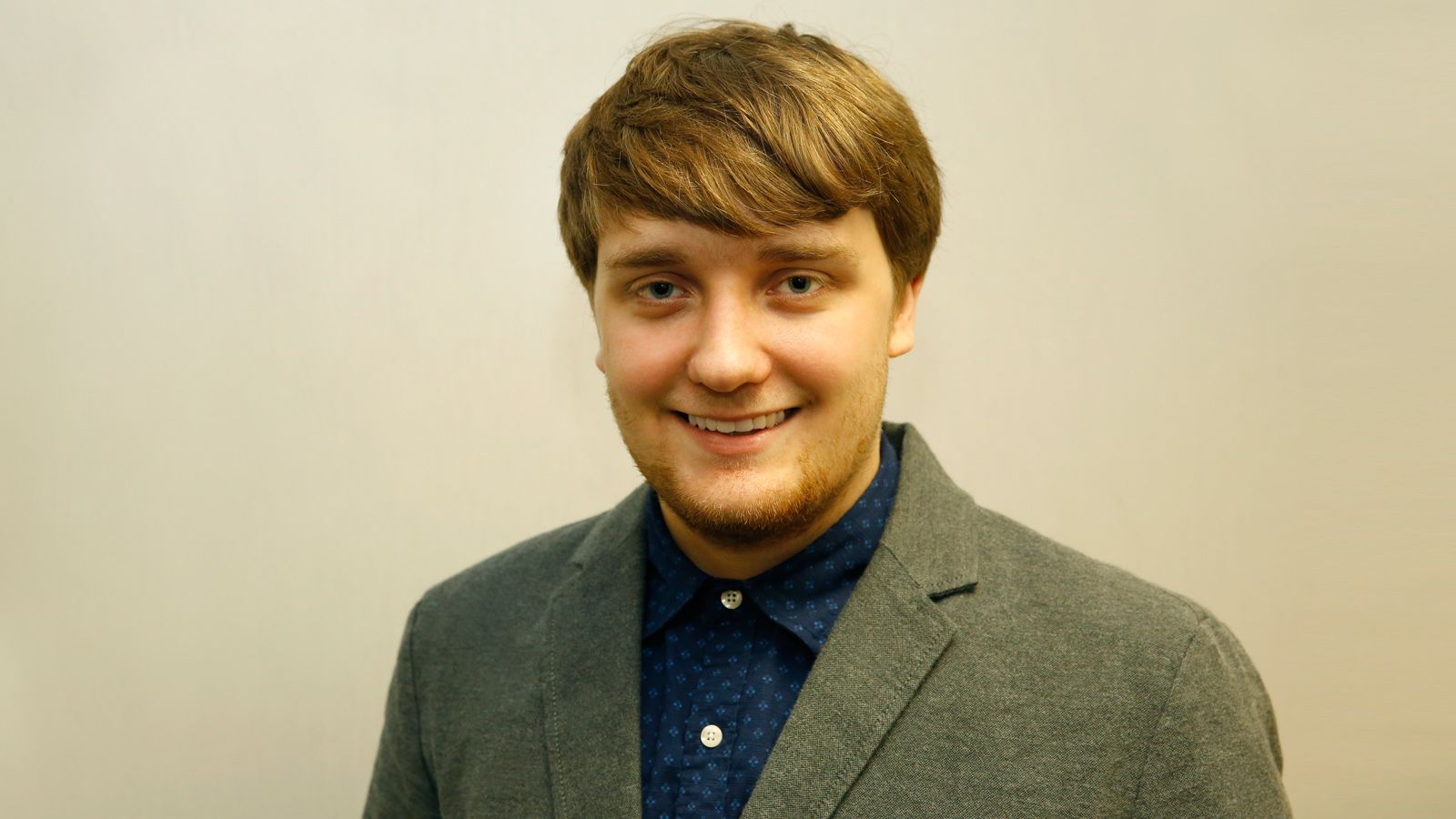On film and TV, the stereotypical young scientist has a laser-like focus on one discipline, scant interest in the humanities, and no interest in sports.
Michael Mazzeo ’18 bursts that stereotype.
The Brooklyn-raised son of a city electrician and school nurse, Mazzeo played on two varsity teams–baseball and football—at Stuyvesant High School. He and his twin sister, Marie, another young scientist with broad academic interests, chose Hunter’s Macaulay Honors College for the unique education and full four-year scholarship it offered.
Mazzeo majored in biochemistry with a minor in human rights, enjoyed the humanities as much as the sciences, and earned top grades in all of his courses. Deciding on a career in medicine, he joined the Peer Health Exchange, which trains undergrads to teach engaging, student-driven workshops on health topics and skills like sexual health and decision-making. He found Peer Health to be one of best elements of his Hunter experience.
“I’m in love with the program,” he says, noting that it helped him realize how much he loves teaching. He stayed with it throughout his four years at Hunter, and his decision to minor in human rights—unusual for a science major—also reflected his passionate interest in education as a force for justice, equality and social progress.
Along with serving as a Peer Health volunteer, Mazzeo tutored in the Department of Biological Sciences and peer-mentored other Macaulay students. Through Hunter’s Human Rights Program, he interned at the NYC Department of Health’s East Harlem Neighborhood Action Center, informing local residents of health-care programs and important legislation.
As he taught and mentored others, Mazzeo had his own mentors at Hunter. He especially credits Professors Adrienne Alaie, Lev Sviridov, and Frida Kleiman for providing the inspiration and support he needed as he made his way through a challenging pre-med curriculum.
The fact is, he made his way so well that he’s now a valedictorian of his graduating class—an honor shared by his sister.
Mazzeo’s Fulbright year in Spain begins next September. He’ll teach, of course—probably on the high school level. And while he doesn’t know which medical specialty he’ll eventually pursue, he does know that once he’s completed his own training, he’ll devote a large part of his career to the training of young doctors and the health education of the general public.


